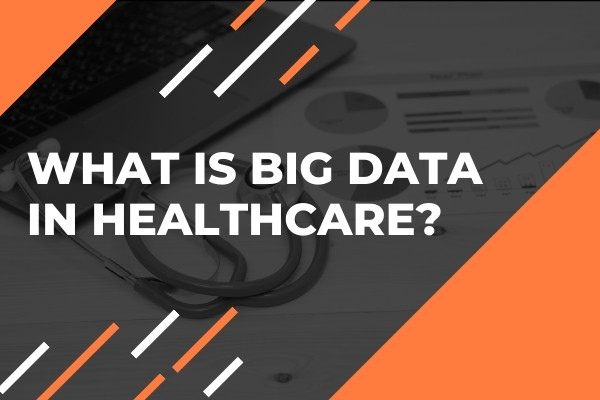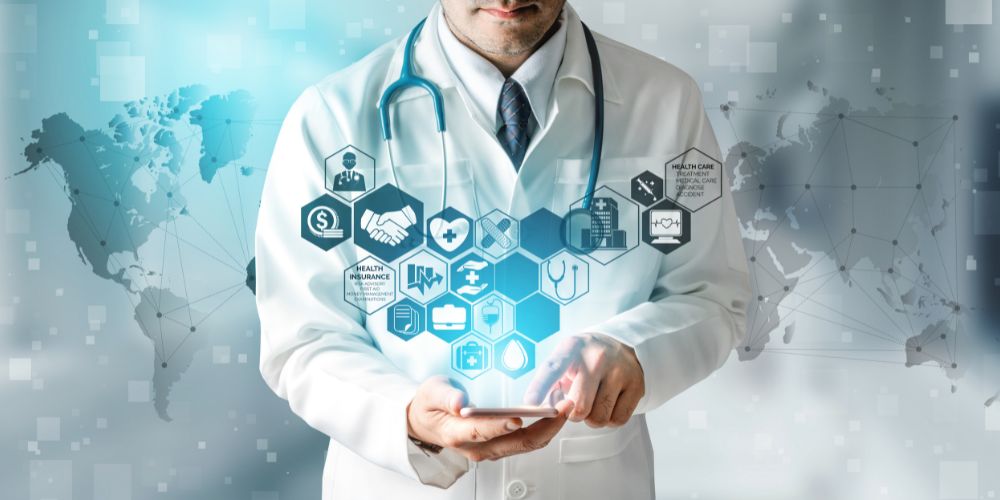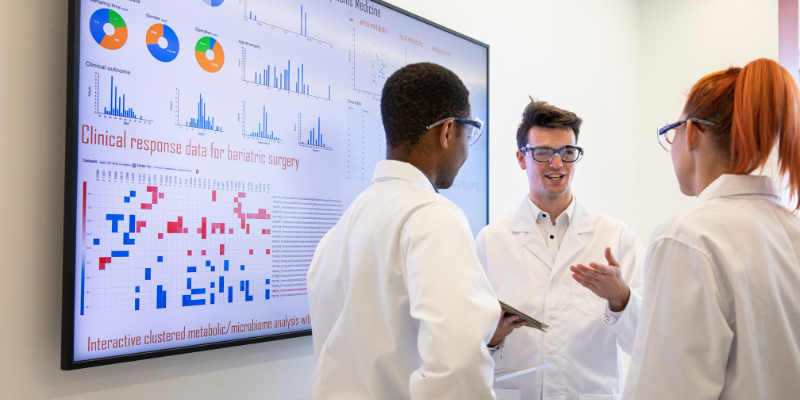What Is Big Data in Healthcare, and How Is It Being Used?

The healthcare industry is undergoing a profound transformation, driven by the advent of big data. Big data refers to the vast volumes of structured and unstructured data generated daily by various sources, including electronic health records (EHRs), medical imaging, wearable devices, and genomic sequencing. The integration and analysis of this data offer unprecedented opportunities to improve patient care, optimize operational efficiency, and advance medical research. This article explores what big data in healthcare is, the sources of this data, and how it is being utilized across different domains of the industry.
What is Big Data in Healthcare?
Big data in healthcare refers to the aggregation, storage, and analysis of large, complex datasets generated by health-related activities. These datasets are characterized by the “four Vs” of big data:
- Volume: Healthcare generates massive amounts of data from various sources such as EHRs, clinical trials, medical imaging, and insurance claims. The volume of data is so large that traditional data management tools are often inadequate.
- Velocity: The speed at which data is generated and processed is critical in healthcare. Real-time data, such as vital signs from wearable devices, needs to be captured and analyzed promptly to make timely clinical decisions.
- Variety: Healthcare data comes in various forms, including structured data (e.g., patient demographics, lab results), unstructured data (e.g., physician notes, imaging reports), and semi-structured data (e.g., emails, social media posts). The diversity of data types presents challenges in data integration and analysis.
- Veracity: The accuracy and reliability of healthcare data are paramount. Inaccurate or incomplete data can lead to incorrect diagnoses or ineffective treatments. Ensuring data quality and consistency is a significant challenge in big data analytics.
Sources of Big Data in Healthcare
Big data in healthcare is derived from a wide range of sources, each contributing to a comprehensive understanding of patient health and the healthcare system.
- Electronic Health Records (EHRs): EHRs are digital versions of patients’ medical histories, including diagnoses, medications, treatment plans, immunization dates, allergies, and test results. EHRs are a primary source of big data, providing a rich repository of patient information that can be analyzed to improve care quality and outcomes.
- Medical Imaging: Imaging technologies such as X-rays, MRIs, and CT scans generate large volumes of data. Advanced image processing techniques and machine learning algorithms can analyze these images to detect patterns, identify abnormalities, and assist in diagnosis.
- Genomic Data: Genomic sequencing produces vast amounts of data related to an individual’s genetic makeup. Analyzing this data can help identify genetic predispositions to certain diseases, enabling personalized treatment plans.
- Wearable Devices and Remote Monitoring: Wearable devices, such as fitness trackers and smartwatches, continuously collect data on an individual’s physical activity, heart rate, sleep patterns, and other vital signs. This real-time data can be used for remote patient monitoring, chronic disease management, and preventive care.
- Clinical Trials and Research: Clinical trials generate extensive datasets that include patient responses to new treatments, drug efficacy, and adverse effects. Analyzing this data can accelerate the development of new therapies and improve clinical practices.
- Social Media and Public Health Data: Social media platforms and public health databases provide valuable insights into population health trends, patient experiences, and disease outbreaks. Analyzing this data can support public health initiatives and inform healthcare policy.
How Big Data Is Being Used in Healthcare
The application of big data in healthcare is multifaceted, encompassing clinical care, operational efficiency, research, and public health. Below are some of the key areas where big data is making a significant impact.
1. Personalized Medicine
Personalized medicine, also known as precision medicine, is an approach that tailors medical treatment to the individual characteristics of each patient. Big data plays a crucial role in this by integrating data from EHRs, genomic sequencing, and other sources to create personalized treatment plans.
For example, in oncology, big data analytics can be used to identify specific genetic mutations that drive cancer growth in an individual patient. This information allows clinicians to select targeted therapies that are more likely to be effective for that patient, minimizing unnecessary side effects and improving outcomes.
Additionally, big data can help identify which patients are at higher risk for certain diseases based on their genetic profile and lifestyle factors. This enables proactive interventions, such as lifestyle modifications or preventive medications, to reduce the likelihood of disease development.
2. Improving Clinical Decision-Making
Big data analytics can enhance clinical decision-making by providing healthcare providers with real-time insights and evidence-based recommendations. By analyzing large datasets from similar patient populations, big data can identify patterns and trends that may not be apparent in individual cases.
For instance, predictive analytics models can be used to assess a patient’s risk of readmission after discharge from the hospital. By identifying high-risk patients, healthcare providers can implement targeted interventions, such as follow-up appointments or home health services, to prevent readmissions and improve patient outcomes.
Big data can also support diagnostic accuracy by integrating data from multiple sources, such as lab results, imaging studies, and clinical notes. Machine learning algorithms can analyze this data to identify potential diagnoses and suggest further tests or treatments.
3. Enhancing Operational Efficiency
Healthcare organizations are leveraging big data to optimize their operations and reduce costs. By analyzing data on patient flow, resource utilization, and staffing levels, hospitals can identify inefficiencies and implement process improvements.
For example, predictive analytics can be used to forecast patient admissions and optimize bed management. By anticipating patient needs, hospitals can allocate resources more effectively, reducing wait times and improving patient satisfaction.
Big data can also be used to monitor and manage the supply chain, ensuring that medical supplies and pharmaceuticals are available when needed. By analyzing purchasing patterns and inventory levels, healthcare organizations can reduce waste and avoid stockouts.
In addition, big data can support workforce management by analyzing staffing levels and scheduling patterns. This helps ensure that the right number of healthcare providers are available to meet patient demand, reducing burnout and improving the quality of care.
4. Advancing Medical Research
Big data is transforming medical research by enabling the analysis of large, diverse datasets that were previously inaccessible. This has accelerated the pace of discovery and facilitated the development of new treatments and therapies.
One of the most significant contributions of big data to medical research is in the field of genomics. By analyzing large-scale genomic data, researchers can identify genetic variants associated with diseases, leading to the development of targeted therapies and personalized treatment plans.
Big data is also being used to conduct large-scale observational studies, often referred to as “real-world evidence” studies. These studies analyze data from EHRs, claims databases, and other sources to assess the safety and effectiveness of treatments in routine clinical practice. The insights gained from these studies can inform clinical guidelines and regulatory decisions.
Moreover, big data is enabling the development of predictive models that can identify potential drug candidates and predict their efficacy and safety. This has the potential to streamline the drug development process, reducing the time and cost associated with bringing new therapies to market.
5. Improving Population Health Management
Population health management involves the proactive management of the health of a population, with the goal of improving outcomes and reducing costs. Big data plays a critical role in this by providing insights into the health status of populations and identifying high-risk individuals who may benefit from targeted interventions.
For example, big data can be used to identify patients with chronic conditions, such as diabetes or heart disease, who are at high risk for complications. Healthcare providers can then implement care management programs, such as regular check-ups, medication management, and lifestyle coaching, to help these patients manage their conditions and avoid hospitalizations.
Big data can also be used to monitor and address social determinants of health, such as housing, education, and income, which have a significant impact on health outcomes. By analyzing data from multiple sources, healthcare organizations can identify communities at risk and implement targeted interventions to improve health equity.
In addition, big data can support public health initiatives by providing real-time surveillance of disease outbreaks and tracking the spread of infectious diseases. This allows public health officials to respond quickly to emerging threats and implement measures to prevent the spread of disease.
6. Ensuring Quality and Safety in Healthcare
Ensuring the quality and safety of healthcare is a top priority for healthcare organizations. Big data analytics can help identify and address quality and safety issues by analyzing data from EHRs, incident reports, and other sources.
For example, big data can be used to monitor and reduce the incidence of hospital-acquired infections (HAIs). By analyzing data on infection rates, patient demographics, and treatment protocols, healthcare organizations can identify risk factors and implement preventive measures.
Big data can also support the identification and reduction of medical errors, such as medication errors or diagnostic errors. By analyzing data on adverse events and near misses, healthcare organizations can identify patterns and implement process improvements to reduce the likelihood of errors.
In addition, big data can be used to monitor patient outcomes and identify areas for improvement. For example, analyzing data on surgical outcomes can help identify variations in care and implement best practices to improve patient outcomes.
Challenges and Considerations
While big data offers significant opportunities for improving healthcare, it also presents several challenges and considerations that must be addressed.
- Data Privacy and Security: Healthcare data is highly sensitive, and ensuring its privacy and security is paramount. Healthcare organizations must comply with regulations, such as the Health Insurance Portability and Accountability Act (HIPAA), to protect patient data. Implementing robust data encryption, access controls, and monitoring systems is essential to safeguard data from breaches and unauthorized access.
- Data Integration: Healthcare data is often siloed across different systems and formats, making it challenging to integrate and analyze. Developing interoperability standards and using data integration tools can help overcome this challenge and enable the seamless exchange of data across systems.
- Data Quality and Accuracy: The quality and accuracy of healthcare data are critical for effective analysis. Inaccurate or incomplete data can lead to incorrect conclusions and potentially harmful decisions. Healthcare organizations must implement data governance practices to ensure data quality, including data validation, cleaning, and standardization.
- Ethical Considerations: The use of big data in healthcare raises ethical considerations, particularly related to patient consent and data ownership. Patients must be informed about how their data is being used and have the ability to opt out if they choose. Additionally, there must be transparency in how data is collected, analyzed, and used to ensure that it is done in an ethical and responsible manner.
- Skilled Workforce: The successful implementation of big data analytics in healthcare requires a skilled workforce with expertise in data science, analytics, and healthcare. Healthcare organizations must invest in training and development programs to build the necessary skills and knowledge within their teams.
Conclusion
Big data is revolutionizing the healthcare industry, offering new opportunities to improve patient care, optimize operations, and advance medical research. By harnessing the power of big data, healthcare organizations can deliver personalized medicine, enhance clinical decision-making, and improve population health management. However, realizing the full potential of big data in healthcare requires addressing challenges related to data privacy, integration, quality, and ethics. As the healthcare industry continues to evolve, big data will play an increasingly important role in shaping the future of healthcare, ultimately leading to better outcomes for patients and communities.




